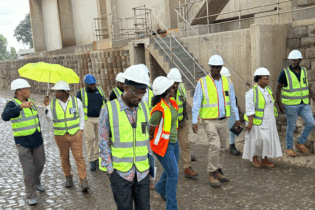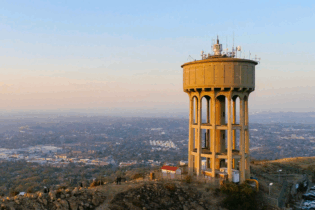By Liesl Frankson
Water supply within the Polokwane municipality is currently under strain and cannot cope with the demand. The municipality is currently receiving 18 Mega litres per day of normal flow and 67 Mega litres per day of peak flow. According to the municipality the reservoirs are very low, resulting in water shortages mainly in high lying areas. Some of the areas affected by the shortages include Thornhill, Ster Park, Serala View, and Flora Park. The problem persists even though Lepelle Northern Water (LNW) is pumping more water to Polokwane. The municipality has urged residents and members of the public to use water sparingly and refrain from watering gardens. On Wednesday, 5 November 2014, the municipality reported that the Krugersburg 50ML reservoir was at 14% of its capacity while the Krugersburg 30ML was at 19%. The Potgieter reservoir was at 92%, Extension 34 was at 95% and the Seshego reservoir at 65%of its capacity. Speaking at a media briefing on her 100 days in office, Executive Mayor, Councillor Thembi Nkadimeng, said an application to get additional water to the city has been submitted to the department of Water and Sanitation (DWS) and they are awaiting approval.“A meeting was also held with the Acting Director General of DWS, where all challenges were presented and he instructed that a task team should be established to look at the water crisis in Polokwane,” she added.
Low water levels in the Polokwane Municipality have been an ongoing problem and reports of water shortages in the city have been appearing in the news since 2011. In the past the municipality has attributed the low water levels to the increased population growth as well as households using more water for their gardens. According to the municipality an amount of R27.8 million has been set aside for the upgrading of water schemes in the 2014/2015 (current) financial year. “The Municipality remains committed to ensuring uninterrupted water supply and we will supply water through tankers to areas which are experiencing shortages as and when necessary,” concluded Nkadimeng.






